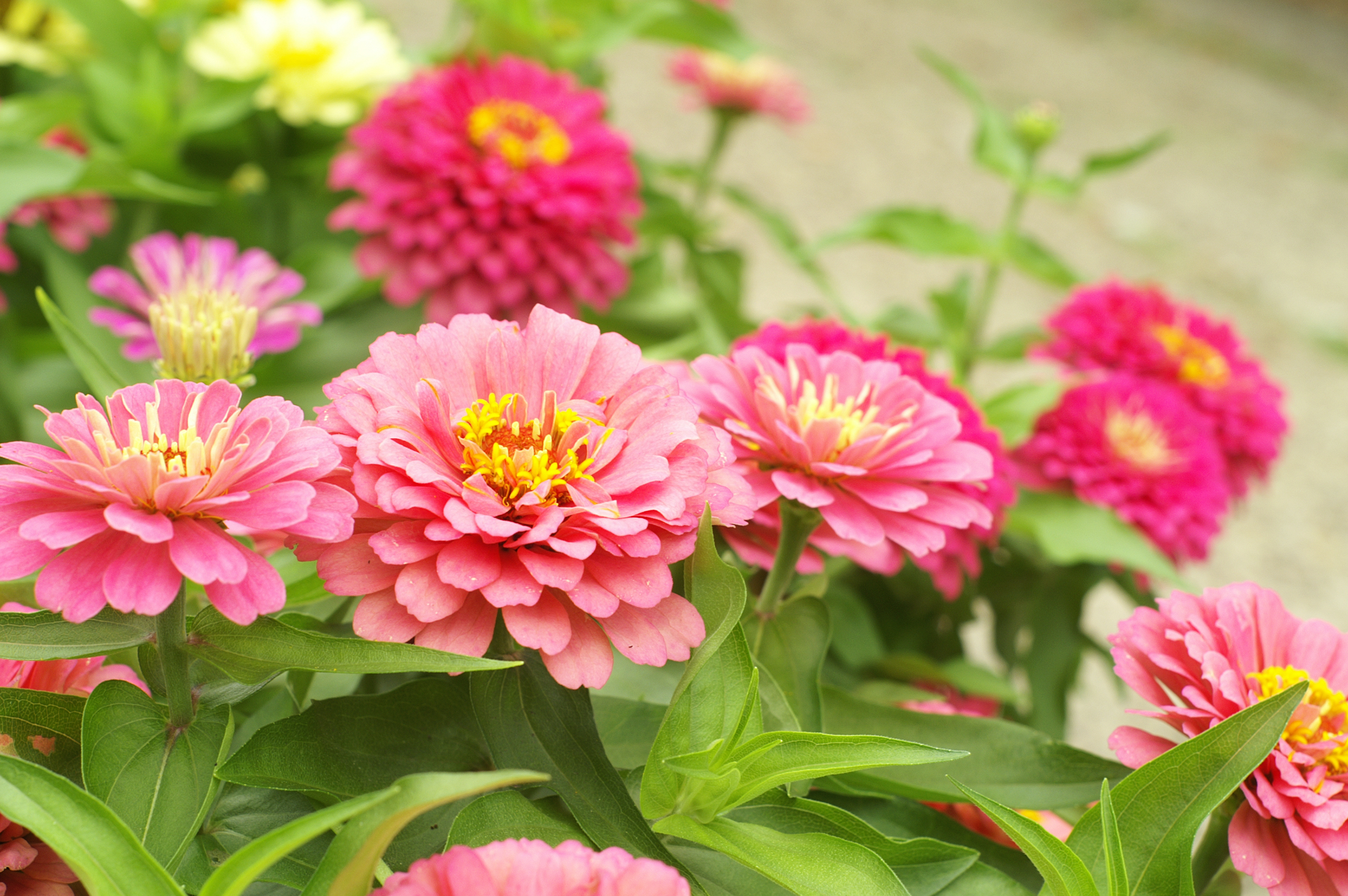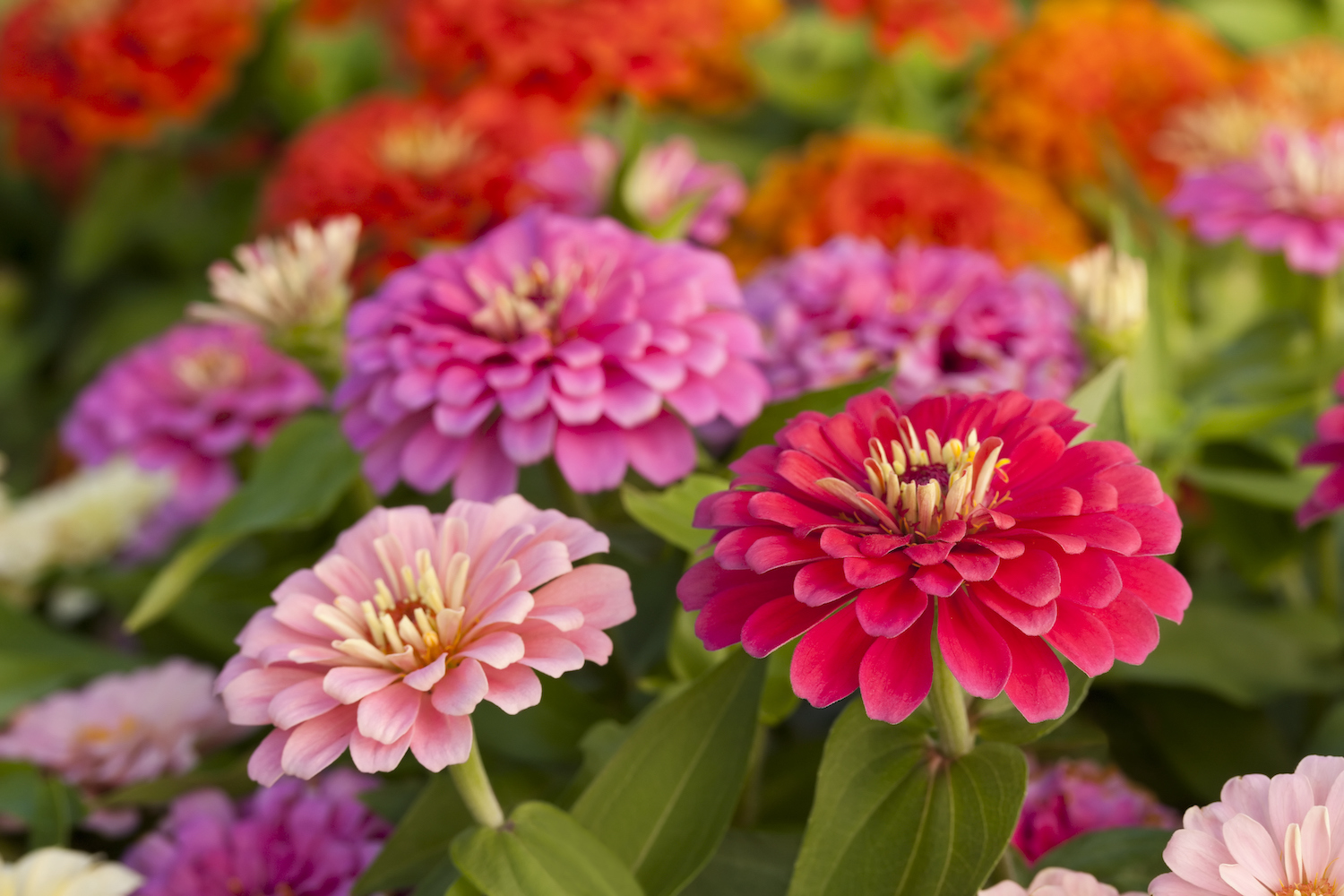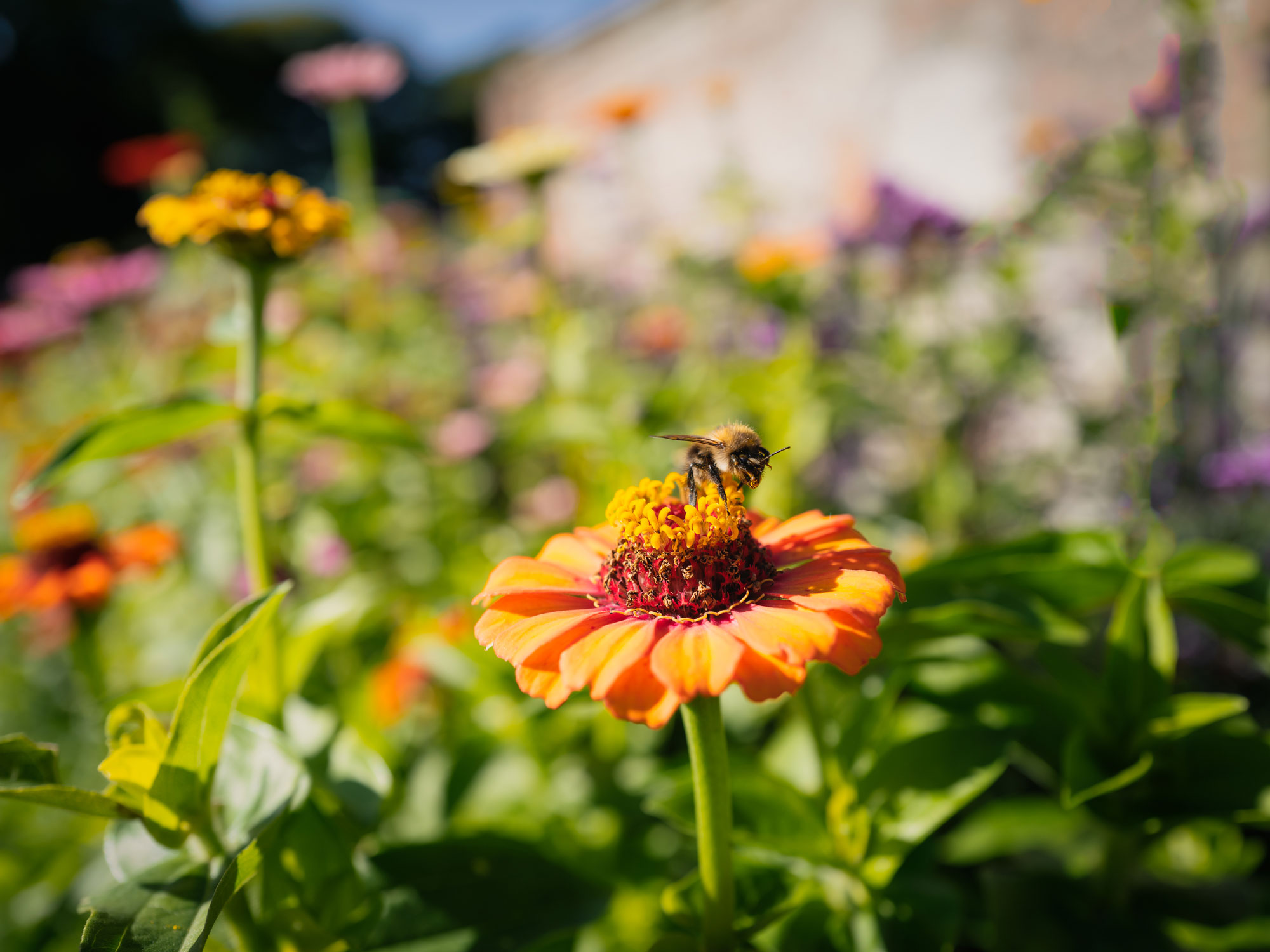
Daisy-like silhouettes coupled with stunningly vibrant summery hues, zinnias fashion the best of both worlds. Pollinators love these pretty little blooms and while they're wildly popular outdoor grows, they're also currently having their moment as bouquet-perfect cut flowers.
And since they are one of the best fast-growing flower seeds around, zinnias make for a lovely addition to any garden. They bloom in various colors and at different heights so you can opt for a personalized pick that works for your space.
One look at these flowers and we simply had to find out everything we needed to do to bring these flowers into our backyard. So we consulted our experts and they've let us in on everything we need to know for a flourishing zinnia bush.
How to grow Zinnias

'Zinnias are one of the easiest flowers to grow from seed,' says gardening expert Tony O'Neill. He goes on to tell us that one of the main things to consider is the location of planting. 'They thrive in well-draining soil with plenty of sunlight,' he notes.
'To start, plant the seeds about 1/4 inch deep in the soil after the last frost has passed,' he says. 'Ensure they have plenty of space to grow by spacing the seeds 6 to 12 inches apart.'
Besides intentionally dispersing the seeds and ensuring that your zinnias are sunlit, all you need to worry about is watering. 'I recommend watering them regularly,' says Tony. 'Making sure the soil is moist and not waterlogged.'
Landscaping with flowers adds such a gorgeous finish to an outdoor space and zinnias are proof that it can be done easily and quickly.
Types of Zinnias

When it comes to seasonal summer flowers, everyone is bringing into their homes right now, zinnias are at the top of the list. And while some of these flowers favor the bold, there are plenty of zinnia varieties to choose from based on your preferred floral style.
Zinnia elegans (Common Zinnia): Tony tells us that this variety of zinnias is known for large blooms that come in a wide variety of colors. A timeless option among the zinnia family, these flowers are a gardener's go-to. Carrie Spoonemore, co-creator of From Seed to Spoon, tells us that these are the classic, upright zinnias with a bushy habit.
Zinnia angustifolia (Creeping Zinnia): 'This type of zinnia is great for ground cover,' says Tony. 'Since they feature smaller, single-petal flowers.' Additionally, Carrie tells us that this zinnia variety is also ideal for border planting, thanks to its narrow leaves and spreading habit. So if you're looking for modern garden border ideas for stylish outdoor spaces, look no further than zinnia angustifolia.
Zinnia haageana (Mexican Zinnia): 'Also known as Mexican zinnia, this variety has smaller, compact flowers and plants,' notes Carrie. 'And as a bonus, they are very drought-tolerant.' Tony also finds that these bicolored flowers do well in hot climates and tells us that they're known to be hardy.
Zinnia marylandica: According to Carrie, zinnia marylandica is a hybrid between zinnia elegans and zinnia angustifolia. 'They combine the best traits of both species,' says Carrie. 'Including disease resistance and prolific blooming.' Moreover, Tony points out that this blend is disease-resistant and blooms in vibrant colors.
Price: $11
Includes: Thumbelina, Lilliput, Envy, Purple Prince and Pompon Varieties
How to care for Zinnias

Zinnias are among the best flowers for raised beds but also do just as well in the ground. So no matter which planting method you opt for, just be sure to treat them to a little TLC for prolific blooms.
In conversation with Carrie, she tells us that the most important thing to ensure is that zinnias receive are planted in well-draining soil around a spot in the garden that gets plenty of sun.
'Water them regularly, allowing the soil to dry out between waterings to prevent root rot,' she advises. 'And deadhead spent flowers to encourage continuous flowering.'
Carrie recommends applying a balanced fertilizer every 4-6 weeks during the growing season. She also adds that taller zinnia varieties may benefit from staking to support their growth and prevent them from falling over.
Problems that commonly affect Zinnias

As one of the best flowers for beginner gardeners, zinnias are particularly resilient blooms. However, there are a couple of small problems that tend to affect them. Luckily, they are very easy to combat.
Powdery Mildew: Tony tells us that this is a common problem with flowers and is simply solved. 'Prevent this fungal disease by ensuring good air circulation and avoiding overhead watering,' says Tony. 'And treat the affected plants with a fungicide if needed.'
Leaf Spot: According to Tony, leaf spots are generally caused by bacteria or fungi. He advises gardeners to remove and destroy affected leaves. Additionally, he also recommends avoiding overhead watering to keep leaf spots at bay.
Aphids and Spider Mites: No one likes a garden pest, least of all on beautiful flowers. But Tony tells us that these pests can be quickly controlled with insecticidal soap or neem oil.
Check out these pest control products
FAQs
How much room do Zinnias need?

Carrie tells us that zinnias need 6-24 inches apart, depending on the variety. 'Taller varieties need more space, while compact varieties can be planted closer together,' she says. 'This spacing ensures adequate air circulation and reduces the risk of disease.
Dwarf Varieties: 6 to 8 inches apart
Medium Varieties: 12 to 18 inches apart
Tall Varieties: 18 to 24 inches apart
Do Zinnias do better in pots or in the ground?
Tony tells us that zinnias can thrive both in pots and in the ground. 'However, they generally do better in the ground where they have more room to spread their roots and access nutrients,' he says. 'If growing in pots, ensure the containers are at least 12 inches in diameter and have good drainage.'
All in all, you can't go wrong with zinnias. And best of all, they make for the perfect flowers to plant in July. They don't take much work and the rewards far outweigh the efforts.
So if you're looking for a floral addition to your backyard that's as pretty as it is low-maintenance, these flowers are right up your alley. Plus, just imagine the joy of making your own stunningly trendy bouquets with blooms that you grew yourself — incomparable!







